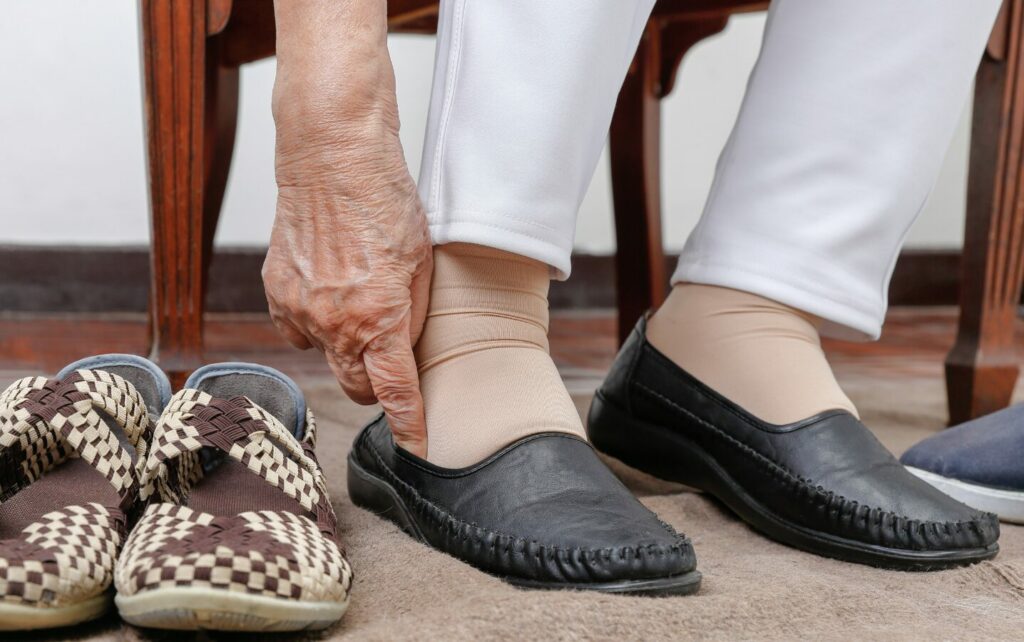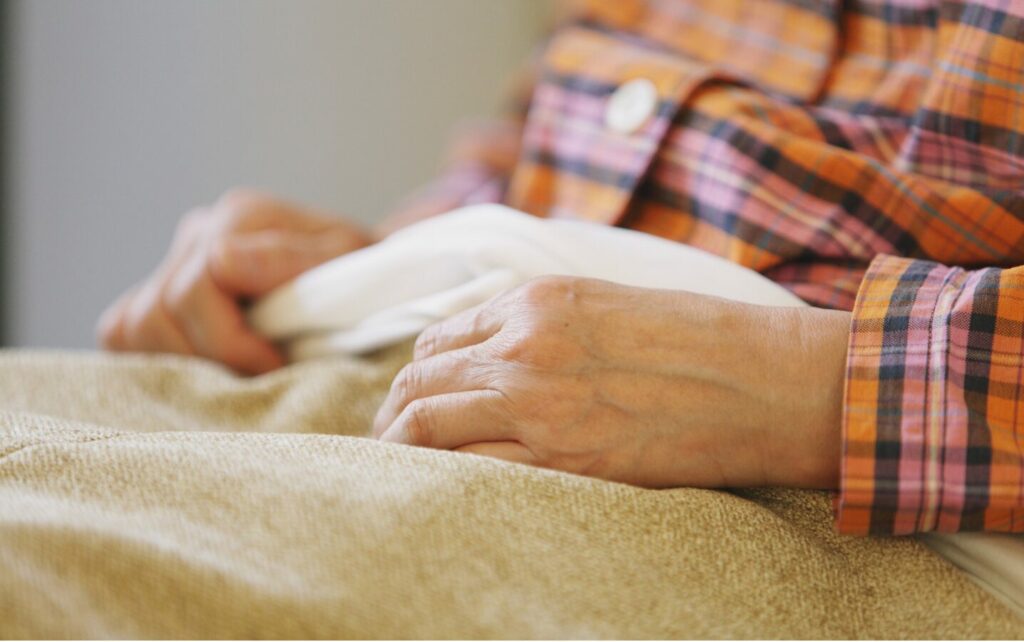Finding the right Christmas gifts for Parkinson’s patients can be both meaningful and rewarding. The best presents are those that make daily life easier, safer, and filled with comfort. From adaptive tools to cozy wellness items, small changes can bring big smiles.
Here’s a thoughtfully curated list of Christmas gift ideas for Parkinson’s patients that are designed to support independence and joy this holiday season.

As the holiday season approaches, many families look for gifts that aren’t just joyful but genuinely helpful. If you have a loved one living with Parkinson’s disease, the best present you can give may be something that makes daily life easier, safer, and more comfortable.
Below are ten carefully selected, research-informed, and Amazon-accessible gift ideas — each one chosen to bring a little more ease, warmth, and connection to this Christmas season.
''Affiliate Disclosure: This page contains affiliate links, and while it may not cost you anything extra, if you make a purchase through these links, We’ll earn a small commission''.
🎁 Quick Gift Finder: 10 Thoughtful Ideas at a Glance
Short on time? Scan this festive list first — full details, research insights, and Amazon examples are below.
1. Adaptive Weighted Utensils
To turn every meal into a moment of independence

For many people living with Parkinson’s disease, tremors and reduced hand control can turn something as simple as eating into a daily frustration. Adaptive utensils are a small change that can make a big difference.
Weighted spoons and forks are designed to stay steadier in your hand, helping to reduce spills and improve control. Most have non-slip, ergonomic handles that are thicker and easier to grip, perfect for those dealing with stiffness or shaking.
A 2025 mixed-methods study on cutlery use in Parkinson’s found that “most participants reported difficulties using standard cutlery, citing challenges such as spills and reduced grip stability.” The authors also noted that few participants had ever tried assistive utensils, with barriers like limited awareness, access, cost, and concerns about appearance. When asked what would help, people with Parkinson’s disease preferred textured handles, medium weight, and deeper spoon/fork bowls, practical features you can look for when choosing adaptive utensils.
Based on this study, here is what to look for:
- Utensils with a balanced weight (around 2–3 oz per piece)
- Non-slip silicone or rubberized handles
- Dishwasher-safe materials
- Optional angled handles for easier wrist positioning
Examples:
- BaseSmall 4-Piece Adaptive Utensils Set
- Greenants Adaptive Weighted Utensils
- Shop Square Stainless Steel Weighted Utensils
- Washenbed Thick Solid Weighted Utensils
Gift idea tip: Wrap it with a festive table napkin or placemat — it’s both practical and heartfelt.
2. Slip-On Adaptive Walking Shoes
To make every step feel steadier, safer, and easier

Parkinson’s symptoms, like stiffness, tremor, or balance problems, can make it difficult for patients to tie their laces or bend down. That’s where adaptive shoes come in.
Slip-on or Velcro-closure footwear offers stability and independence. They’re designed with wider openings, firm heel support, and non-slip soles to prevent falls and make walking more secure. Many also have cushioned insoles to reduce foot fatigue and pressure on stiff joints.
Research published in Nature Scientific Reports showed that in adults with a history of falls, minimal shoes (lightweight, flexible, low heel-to-toe drop) led to more stable standing and walking than conventional shoes, across different visual and walking conditions. They also showed better mobility than conventional shoes and even barefoot.
What to look for:
- Wide, flexible openings for easy wear
- Non-slip grip and supportive soles
- Soft, cushioned interior for comfort
Examples:
- Silverts Adaptive Shoes
- Kizik Slip On Sneakers
- FitVille Extra Wide Walking Shoes
- Orthofeet Orthopedic Knit Lava Sneakers
Gift idea tip: Add a pair of warm, non-slip socks and wrap them together as a cozy “comfort and safety” bundle — perfect for cold mornings and holiday walks.
3. Parkinson’s Management Diary
To empower self-awareness through simple daily notes

For people living with Parkinson’s disease, each day can feel a little different—from how the medication works, to energy levels, to mood and sleep quality. Keeping a daily record can turn those fluctuations into valuable insights.
A diary can make that process simple and empowering. It helps track medication timing, symptoms, meal schedules, and even small daily victories. Over time, those notes become a practical tool to share with your neurologist and a way to notice what truly helps.
Research published in ACM Journal found that self-tracking can enhance self-awareness, promote positive behavior changes, and improve treatment adherence. It also showed that structured diaries support more effective patient–clinician communication, helping fine-tune care and identify what truly helps day-to-day.
We have created a complete set of digital diaries designed to support people living with Parkinson’s disease and their caregivers. Check out the list here.
Gift idea tip: Pair it with an easy-grip pen and a personal note on the first page — it turns a practical tool into a thoughtful reminder that progress, no matter how small, matters.
4. Non-Slip Socks and Adaptive Slippers
To prevent slips, boost safety, and add warmth

Inside the home is where many falls happen, especially when floors are slick or lighting is low. For someone living with Parkinson’s disease, a simple switch to non-slip socks or adaptive slippers can make a meaningful difference in both safety and confidence.
According to the Parkinson’s Foundation, “Wear non-skid socks instead of bathroom slippers. Slippers can slide off your feet, which may result in falls.”
What to look for:
- Socks with rubber-grip soles (high traction)
- Wide opening for ease of donning and doffing
- Breathable, comfortable fabric (especially for long wear)
- Adaptive slippers: Velcro or elastic closures, firm soles, easy to slip on
Check out our article: Best house slippers for Parkinson’s patients
Gift idea tip: Roll the socks or pair them with a plush foot-rest pillow or warm blanket — creating a “relaxing evening at home” bundle.
5. Weighted Blanket or Handheld Massager
Calm, comfort, and better sleep — gifts that restore both body and mind.

Muscle stiffness, restlessness, and sleep disruptions are common, especially in the evening, for many people living with Parkinson’s disease. A weighted blanket or handheld massager can help usher in calm, easier transitions to rest and moments of comfort.
A brief review, published in Frontiers Psychiatry, the covering multiple populations found that weighted blankets improved subjective sleep quality and reduced daytime fatigue in those with sleep-related or behavioral disorders.
What to look for:
- A blanket that weighs roughly 8–12% of body weight (or more moderately if mobility is reduced)
- Soft, breathable fabric that won’t feel too hot during the night
- For the massager: cordless, lightweight, variable speed, easy to grip
Examples:
Gift idea tip: Place the blanket in a holiday gift bag with a small note like “For peaceful evenings ahead” or pair the handheld massager with a soothing essential-oil roller for a mini “at-home spa” experience.
6. Smart Speaker or Voice-Activated Display
Giving freedom through simple voice commands

For people living with Parkinson’s disease, even small tasks like adjusting lights, setting reminders, or making a phone call can sometimes feel like a challenge, especially when fine-motor control or balance are affected. That’s where voice-activated smart devices come in.
Smart speakers such as the Amazon Echo Show or Google Nest Hub respond to simple voice commands, helping people manage routines hands-free. They can announce medication times, play music, make video calls, or even control the thermostat — all with a few spoken words.
Research published in JMIR Rehabilitation and Assistive Technologies found that voice-activated and conversational agents can enhance independence and support daily living for people with motor impairments by reducing the need for physical input and offering personalized assistance throughout the day.
What to look for:
- Clear microphone pickup for softer speech
- Simple touchscreen or screen-free options depending on comfort
- Compatibility with smart-home lights or plugs
Examples:
Gift idea tip: Preload the device with holiday playlists or family photos, and set it up before gifting — that way, the recipient can enjoy it right out of the box.
7. E-Reader or Audiobook Subscription
Keeping the joy of reading alive, even when hands or vision need a little help.

Holding a heavy book, turning pages, or focusing on small print can become tiring for someone living with Parkinson’s disease. Fortunately, e-readers with large-print settings and audiobooks that can be enjoyed hands-free make literature accessible again.
A 2022 study published in Alzheimer’s Research & Therapy found that among older adults, listening to audiobooks stimulated more brain regions and was linked to better executive function and memory performance compared to print reading alone. This suggests that for people with Parkinson’s, switching to audio formats or large-font e-readers may support cognitive engagement even when physical reading becomes challenging.
What to look for:
- E-reader with adjustable font size, lightweight build, and glare-free screen
- Audiobook subscription service that allows hands-free listening
- Ability to browse favorites and build a library of enjoyable titles
Example:
- Kindle Paperwhite or an Audible subscription
Gift idea tip: Create a “reading gift basket” with the device/subscription and add a curated list of uplifting books or audiobooks you think they’ll love.
8. Adaptive Clothing and Dressing Tools
To dress independently and with comfort instead of frustration.

For many people with Parkinson’s disease, fine-motor challenges like buttoning shirts, pulling zippers, or tying shoelaces can make dressing one of the hardest parts of the day. Adaptive clothing offers a simple solution, turning what used to be a struggle into something easy and dignified.
Adaptive garments use magnetic closures, Velcro fasteners, and stretch fabrics so they can be put on and taken off with minimal effort. Likewise, simple aids like button hooks, zipper pulls, or long-handled shoehorns give that extra bit of independence that makes a big difference in daily life.
A study published in Disability and Rehabilitation: Assistive Technology highlights that adaptive clothing and assistive dressing tools significantly improve self-dressing ability and reduce caregiver dependence among people with movement disorders. The study emphasizes how thoughtful design, like larger grips, easy fasteners, and soft fabrics, supports autonomy and comfort.
What to look for:
- Magnetic or Velcro closures instead of buttons
- Stretchable, soft, breathable fabrics
- Dressing aids with ergonomic, non-slip handles
Example:
- MagnaReady Magnetic Dress Shirt
- Deyeek Full Open Side Snap Adaptive Chemo Clothing
- Weeoatar Disability Clothing with Zippers
- Bedridden Patient Clothes, Disability Set
Gift idea tip: Wrap an adaptive shirt or a small dressing aid set inside a decorative box with a cheerful scarf — turning a practical aid into a gift that feels warm, personal, and stylish.
9. Gentle Exercise or Movement Gift – Health Wrapped in Joy
A joyful way to support strength, balance, and mood.

Few gifts have as much long-term value as the gift of movement. Regular exercise, even gentle forms like walking, stretching, or Tai Chi, can help people with Parkinson’s disease move more freely, maintain balance, and feel more energized.
A class voucher, small exercise tool (like a pedal exerciser or resistance bands), or even an online Parkinson’s specific fitness program can make exercise easier to enjoy at home. The key is finding movement that feels good, not forced.
Research published in the Journal of Parkinson’s Disease found that consistent aerobic and balance exercise improves mobility, mood, and overall quality of life for people with Parkinson’s disease, and may even slow the progression of motor symptoms when done regularly.
What to look for:
- Low-impact exercise options (Tai Chi, yoga or seated cycling)
- Parkinson’s-specific fitness programs online or through local groups
- Lightweight resistance tools or portable pedal exercisers
Examples:
- NISDOKR DeskCycle Under Desk Exercise Bike (Amazon)
- Geftnest Chair Yoga Cards for Seniors
- Fitbeast Grip Strength Trainer Kit
- The Complete Fitness Guide for Parkinson’s
Gift idea tip: Wrap a resistance band set or mini-exerciser with a personal note — “Here’s to staying strong and moving with joy in the new year.”
10. Digital Photo Frame
Bringing loved ones closer every day, one cherished memory at a time.

Living with Parkinson’s disease can sometimes feel isolating, especially during the colder months when getting out isn’t always easy. A digital photo frame can brighten the day with familiar smiles, shared memories, and a sense of connection that goes beyond words.
Modern WiFi-enabled frames allow friends and family to upload photos remotely, meaning new memories can appear instantly. It’s a simple but powerful way to help someone feel included, even from afar.
Research published in Frontiers in Psychology found that digital photo sharing can significantly reduce loneliness and improve emotional well-being in older adults by reinforcing social bonds and positive self-perception.
What to look for:
- WiFi-enabled frame with easy mobile app for photo uploads
- Clear, bright display and simple setup
- Auto-rotation and adjustable brightness
Examples:
Gift idea tip: Preload the frame with family photos, short messages, or holiday snapshots before gifting — it turns technology into a hug that never fades.
Final Thoughts
Choosing a Christmas gift for someone with Parkinson’s disease isn’t just about finding something useful — it’s about offering comfort, connection, and care in a way that truly matters. Each of these ideas supports everyday independence, safety, or joy, turning ordinary moments into something special.
Whether it’s a cozy blanket, a smart helper that listens, or a simple diary to track progress, the right gift can quietly say “I see you, I understand, and I’m here for you.”
This holiday season, may your gifts bring more than smiles — may they bring peace, confidence, and a little extra light to those who need it most.
Get Your Free Parkinson’s Medication Management Diary
Download your free printable diary to easily track your medications, symptoms, and doses.
Disclaimer: The information shared here should not be taken as medical advice. The opinions presented here are not intended to treat any health conditions. For your specific medical problem, consult with your healthcare provider.
